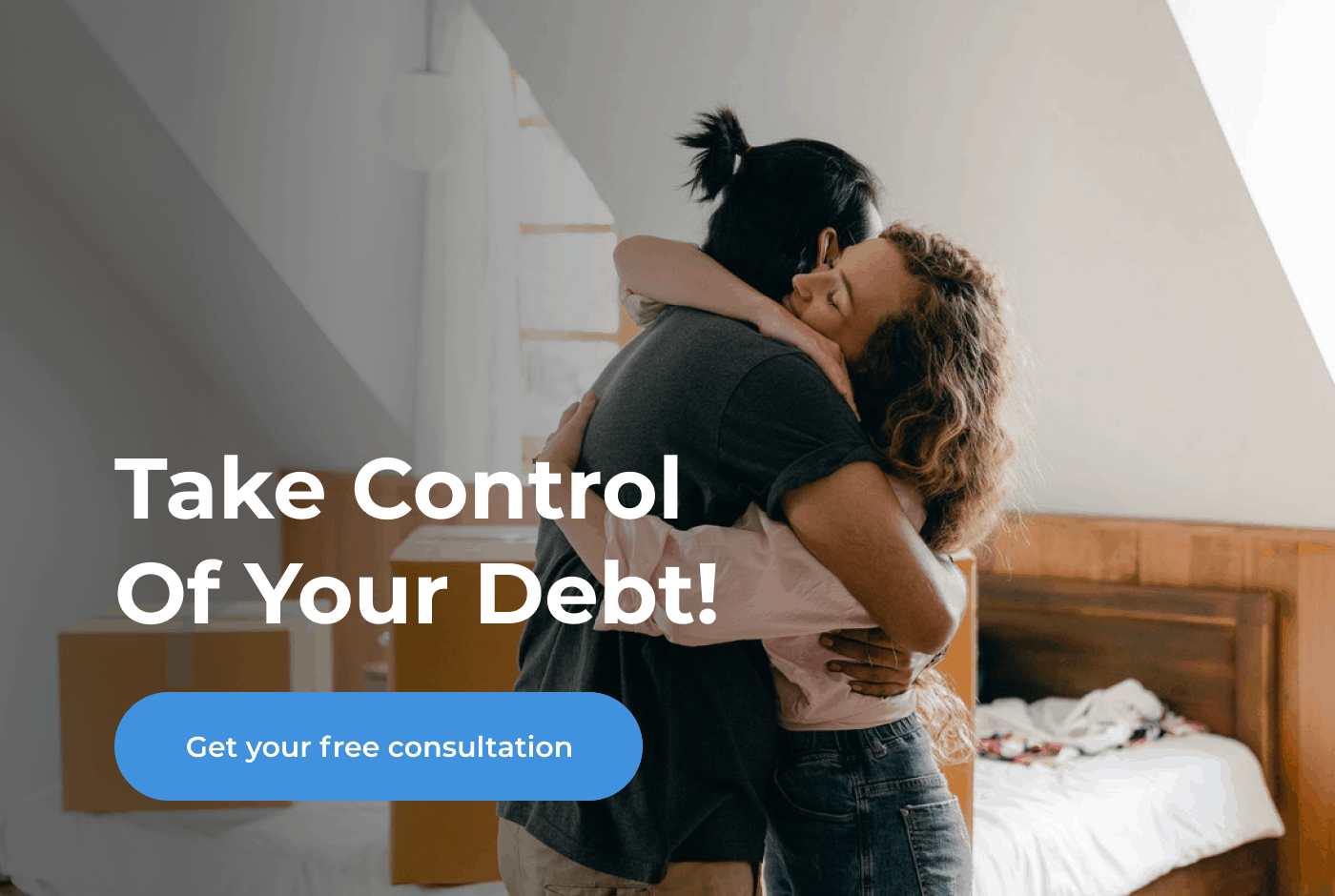How To Get Rid Of Credit Card Debt Without Paying?
Posted on January 13, 2021 in Credit Cards
Do you need to know how to get out of credit card debt without paying? If so, you’ve come to the right place. Massive credit card debt is an issue faced by millions of Americans today. Unhealthy spending habits coupled with a lack of understanding of interest or terms and conditions of credit cards can lead to a large amount of financial problems. Read on below to find out proven strategies for how to get rid of credit card debt without paying.
- How To Get Rid Of Credit Card Debt Without Paying:
- Other Ways How To Get Out Of Credit Card Debt Without Paying
- Final Thoughts on How To Get Rid Of Credit Card Debt Without Paying
The average American carries $6,194 of credit card debt with Iowa residents being the lowest at $4,774 and Alaska residents carrying the highest with $8,026. With interest rates compounding these debts and damaging credit scores, it could be next to impossible to climb out of credit card debt once it reaches the tipping point and passes it.
But hope is not lost as there are ways to get out of debt legally without paying any money. While that may sound like a sweet deal it’s not without consequences, and can be quite difficult to achieve without the right help.
How To Get Rid Of Credit Card Debt Without Paying:
If you can’t pay your debts and are wondering what options you have, our top three strategies below might be able to help you clear your debt without paying.
1. Debt Forgiveness
The first option for how to get rid of credit card debt without paying is arguably the best possible result, but also easily the least likely to happen.
With debt forgiveness, a lender agrees to a reduced amount of total debt balance, even up to the entirety of the balance. Unfortunately, this is a pretty rare occurrence.
Legally, a borrower has signed what is essentially a contract to be liable for the credit they use. The lenders will naturally want this money returned to them but that does not mean they will not be willing to negotiate.
This option essentially boils down to calling the lender and pleading for assistance based upon their financial situations. Although rare, it has been known to work in the past and is at least worth considering if the financial situation is desperate enough.
However, even if a lender is willing to forgive the entirety of the debt, this will create a new issue with the IRS. They view any debt forgiven as income and taxable. So even in the best case scenario, it will still end up costing a borrower money.
2. Debt Settlement
This option is probably the best one to consider, especially in the event that forgiveness either did not work or would not work. Debt settlement is also an excellent choice if you’re looking for a way how to stop paying credit cards legally.
Debt settlement is when a lender agrees to have the balance lowered and still consider the debt satisfied. This is an excellent option for how to get rid of credit card debt legally.
Now, there are two different ways to go about this option. The more complicated option is to attempt the negotiation yourself. The easier option is to hire a professional debt settlement firm to assist in the negotiations. If you’re interested in this great option, read more about if debt settlement is worth it for your personal finance situation.
Individual Negotiations
When negotiating a debt down there are a few factors to keep in mind.
Firstly, a credit card debt is what’s known as an unsecured loan. This means nothing is offered up for collateral. In the cases of auto or home loans, if payment is not made then those assets could be seized in order to cover the loan.
Credit card debt does not have this potential consequence. As a result, credit card lenders know that given the choice between missing a payment and losing their car, or missing a payment and losing nothing, the majority of borrowers will select the latter option. This gives the borrower an advantage in negotiating. The lender would happily take all the payment but would much rather have some of it instead of none of it.
Another helpful tip is that when credit card lenders stop receiving payments they will often sell the debt to a collection agency. What this means is the collection agency will buy the debt, often at pennies on the dollar, and then they will be the ones contacting the borrower going forward. The trick here is to offer the credit card lender more money than they would make selling it to the collection agency. Essentially if they are going to offer pennies on the dollar and you offer a few dimes, then they will make more money and you will save money.
The big caveat here is that you need that big lump sum to cover the debt, and for most cases, that big lump sum isn’t available for most who need debt settlement as an option in the first place.
Professional Negotiations
This option for getting rid of credit card debt essentially takes all the same tips mentioned previously, only instead of an individual using them, it would be a professional firm. In its most basic form, the borrower pays the firm, and then from there, the firm negotiates and pays the lender.
Debt settlement firms come in handy mostly because the debt settlement firm is far more experienced at negotiations, and is able to help front some of the cost of debt settlement if needed.
Moreover, the financial expertise and guidance provided by a debt settlement firm can help huge debts get settled over only the course of a couple of years without the debtor needing to give an arm or a leg to find the lump sum or save up the cash to negotiate themselves.
3. Bankruptcy
The dreaded option that anyone with a financial history tries to avoid at all costs. It can take a long time to recover from a bankruptcy and it should only be considered when all other options have been attempted.
But, if a borrower is desperate enough and needs the help, they would not be the first and will not be the last to file for bankruptcy. There are two different types of bankruptcy with some key differences that should be understood before consideration.
Chapter 7 Bankruptcy
The quicker of the two options is Chapter 7 bankruptcy. This is a process that can wipe out unsecured debts (like credit card debt) through what is known as a discharge.
Now, the key difference between the two is that Chapter 7 bankruptcy is a liquidation bankruptcy. This means that most of an individual’s property will be sold or seized in order to pay off the debts owed.
As if that was not bad enough, Chapter 7 will stay on a credit report for 10 years following.
Chapter 13 Bankruptcy
This type of bankruptcy is a little less harsh and would be worth it in the long run. With Chapter 13 protections, property is not seized or sold at first.
Often, a court-mandated repayment plan will be offered, and if repaid, the property will remain with the borrower and any remaining unsecured debts (like credit cards) could be discharged, although this process could take a few years.
Additionally, this bankruptcy option will remain on the borrower’s credit report for 7 years, and there are no debt loopholes to avoid this from happening.
Other Ways How To Get Out Of Credit Card Debt Without Paying
Unfortunately, while the strategies listed above are excellent for eliminating at least a portion of your debt, you cannot eliminate credit card debt without paying. Filing for bankruptcy for credit card debt will allow you to get out of debt. But, if you’re wondering, “Can I get rid of credit card debt without paying anyone?” the answer is still no.
Refinancing and Consolidation
Although these options will require money to be spent, they are some of the better options for getting out of credit card debt legally. The goal with refinancing and consolidating is to roll all of the credit card debts into one new account, with preferably a lower interest rate which would make the payments cheaper and help to speed up the repayment process.
However, this option relies on having a good credit score or at the very least a better credit score when the initial credit card was issued.
Debt Management Plan
This option can be one of the best for anyone suffering from tremendous debt as it brings in the services and advice of a credit counselor.
Generally debts on the debt management plan will qualify for a waived fee and reduced interest rate, giving it similar benefits to refinancing or consolidation without needing a high credit score.
Final Thoughts on How To Get Rid Of Credit Card Debt Without Paying
Trying to get out of credit card debt while paying nothing can be next to impossible, but there are plenty of options that can help to greatly reduce the total debt without paying the full debt amount.
There are a few options for getting out of credit card debt without paying any money but they can be pretty hard to come by. You don’t want to get into a situation where you’re dealing with what happens if you don’t pay your debt, because it has the potential to lead to severe consequences.
There are thankfully other options though that can help reduce payments and make them easier to pay down and eventually close altogether.
Related blog posts
Need expert financial advice?
Let TurboFinance connect you with the best consulting services and resources to help you take control of your finances and find a path to build wealth.
Get A Free Consultation Today!

